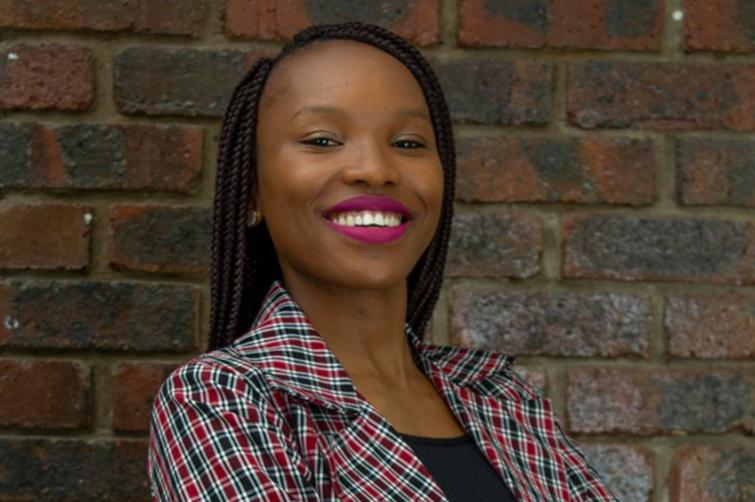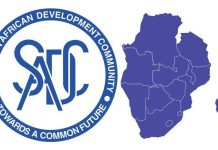Africa-Press – Lesotho. Likeleli Monyamane is an ambitious woman in business who has dedicated herself to mentoring Basotho entrepreneurs to ensure they reach their desired destinations.
Through her company, Inspire Innovation, she has helped a lot of Basotho to become the best they can be. To find more about LIKELELI MONYAMANE (LM), her company and what she is all about, Public Eye reporter MATHATISI SEBUSI (PE) had a one-on-one talk with her.
PE: Likeleli Monyamane.
Who is she, and what makes her tick? LM: It’s hard to describe who I am in a few words, but maybe the best way would be to say that I am a multi-faceted woman with love for life.
I enjoy the outdoors and travelling. I love to teach and to share my knowledge to contribute to other people becoming the best versions of themselves. I love reading and wish I had more time to write.
PE: What are your cherished memories growing up, those that you would say impacted on your outlook towards life?
LM: I spent most of my childhood in boarding school and so a lot of memories of my childhood emanate from there. Being in boarding school made me independent, thick-skinned, and very determined to succeed. It also equipped me with knowing how to network and to build friendships easily.
I also took part in a lot of sports and other extra-mural activities in my childhood, which really helped shape my character and equipped me with discipline, ambition, and a healthy competitiveness (with myself and others) that has challenged me to endeavour to stay ahead of the game in education and career.
PE: What was your most favorite moment or experience in your life’s journey?
LM: My best experience in my life journey so far was building a family, and especially being a mother. Nothing can really beat the love and connection between a mother and her child and to be able to experience that is not something I take for granted. I have also experienced immense growth and a renewed sense of focus and purpose since becoming a mother.
PE: Tell me about your love for business, when and how did it start?
LM: I wouldn’t say I love business specifically. What I love is solving problems and applying the skills I have gained to various problems – whether in business or otherwise.
In the past few years my business served as a platform that enables me to solve problems for my clients and employees. I am also now involved in the corporate sector – an opportunity that arose because of my consulting business.
I do appreciate the role that business can play in creating jobs and contributing positively to the economy and would like to play a part in ensuring that businesses are sustainable in Lesotho.
PE: Your company, Inspire Innovation Business Consultants, what is it about, how did it start and what motivated you to start it?
LM: Inspire Innovation was founded to solve three problems. To provide professional services support to other entrepreneurs, to provide research services to build the entrepreneurship ecosystem and to contribute to skills development in the country.
Our services continue to evolve based on what our target customers need and what they are willing to pay for. My vision with Inspire Innovation is to attract some of the best professionals in the country to build a consulting services company that can compete at an international level.
PE:
How many women have you taken under your wing to teach them their ways around business since you started the company? LM: Since 2018, Inspire Innovation has employed 21 women some of whom were interns who worked with us for two to six months and others who have been full-time.
It has been encouraging to see women who worked with me move on to own their careers and to take on leadership roles. The impact is still small based on what I had set out to achieve when I started, because of normal obstacles in business. However, we hope to achieve more.
PE: How has been women’s response to the services you offer? Do you think women have what it takes to be best entrepreneurs in this country? How?
LM: We have worked with a number of women-owned SMMEs as clients and through our business development programmes and are very inspired by the number of young women who are enthusiastic about business.
Women have as much as it takes to run businesses as men, if not more capacity due to their ability to multi-task, and their natural leadership and nurturing skills.
When women don’t do well in business it is usually due to systematic factors such as gender discrimination, lack of institutional support and lack of family support.
PE: Standard Lesotho Bank has appointed you as an implementing partner in one of its projects also meant to empower women entrepreneurs, what does the opportunity mean to you?
LM: Over the years we have developed and participated in entrepreneurship development initiatives meant to empower and support Basotho entrepreneurs, but this is the first initiative we are involved in that focuses on women entrepreneurs.
While we bring a lot of individual and collective experience to the project, we are also looking to use the opportunity to learn more about what women entrepreneurs need and what areas of support they can be provided with to thrive. Therefore, we are excited about this initiative.
PE: Can you highlight some of the achievements that you pride yourself in as far as empowering and mentoring women entrepreneurs is concerned?
LM: In the business, I have designed, facilitated, and participated in business coaching and training initiatives where women have been part of the beneficiaries, including the UNDP’s EYES programme and our very own Inspire Business Training and Coaching programme which we offered for free over a period of one year.
I have also been a mentor in programmes run by other organisations such as US-based Women-Enabled Enterprises where I was assigned four businesses to mentor.
PE: Do you think our education system plays a part to the increasing unemployment rate? Does it prepare youth to be innovators and job creators instead of job seekers? Please elaborate.
LM: Lesotho’s rising unemployment rate is influenced by a number of factors.
The main factors being that for a long time, the largest formal employer has been the government and the largest informal employer has been the manufacturing sector (factories).
If we think about the challenges that both the government and the manufacturing sector have faced in recent years, then it gives an overview of where the challenge lies.
On the issue of creating innovators and entrepreneurs – this is something that we should do as a country but it doesn’t depend only on the education system.
Other factors that influence our ability to produce innovators and entrepreneurs are; the availability of funding, research and development institutions and incentives, access to markets, and a legal and regulatory framework that enables business and innovation.
I think our education system has produced some of the best professionals and entrepreneurs who go out and succeed in the world. At the same time, there are gaps in our education system – that are not just unique to Lesotho but are faced by many developing countries.
The gaps are in the curriculum – where subjects like technology and digital literacy, entrepreneurship, creativity, and financial literacy need to be taught to capacitate students for today’s world. Furthermore, we need more skills development and internship programmes to provide people with on-the-job training opportunities.
At the same time, people now have more access to learn beyond what the education system provides them so there’s really an opportunity for everyone to equip themselves based on what they want to achieve in life.
PE: In your view, what would be the most exciting and yet effective way to encourage Basotho Youth to start their own businesses instead of waiting on the government for job opportunities, considering that the government has been encouraging them to start their own businesses but not much has been done?
LM: There are two young entrepreneurs in Lesotho who inspire me and I want to use them as examples of what we can do to encourage youth entrepreneurship.
The first is Charis Mosaase who is a 19-year old entrepreneur with a baking business. The second is Relebohile Tapole who is a 17-year-old entrepreneur with multiple businesses who also recently authored a book. These two young women have some things in common.
They come from families that support and encourage them in their “hustle”, they are learning entrepreneurship at a young age and are, therefore, affording themselves time to make mistakes and to learn from those mistakes.
They have access to capital (from their parents/family). They are still going to school just like every child – so they are learning other important skills to supplement their entrepreneurial skills and vice versa.
This is a simplified way of saying that young people need more than just an exciting initiative to encourage them to go into entrepreneurship. There are systematic things that need to come into play to ensure that there is an enabling environment for businesses to thrive.
It’s not enough for the government to just verbally encourage young people to be entrepreneurs when the same government tells you that you need to a trader’s license that costs M500+ to start a business, and in some cases a physical address from where your business will operate.
Many young people don’t have access to such premises. For example, the government must have good policies that encourage investors to fund youth entrepreneurs or to invest in their training.
PE: You are one of the country’s females making waves in the business industry and a role model to many.
What is your secret? What is it that women can do so they too become future Lesotho business leaders? LM: This one is very hard to answer because there is no secret or “magic” behind success or achievements.
First, my background has really set up me up for success in that the challenges that I experienced as a young girl – losing my father at the age of four, watching my mom pursue university while trying to raise us and visiting her at NUL over weekends, losing my mom at the age of 11 and growing up in boarding school – all these things shaped my character and are a big part of my foundation.
Second, finding Christ at a young age, I started going to a church that taught me biblical principles such as “I am valuable”, and “I am born for a purpose on earth” and these are some of the teachings that I held on to as I found my way in the world.
Lastly, I am a hard worker and I try not to squander any opportunity provided to me. I believe in the famous quote that “success is where opportunity meets preparation” and while I spend a lot of time looking for opportunities, I spend more time preparing myself and “sharpening my axe” so that opportunity finds me ready.
PE: Apart from running your company and mentoring women, what else do you do?
LM: I run a mentorship programme for young professionals called – Inspire Mentorship Programme. I am a council member at the Central University of Technology and the chair of its Audit Committee.
PE: Where do you see yourself in five years?
LM: I have no idea where I’ll be in five years – but wherever I’ll be I will be solving problems and positively contributing to the lives of those around me.






